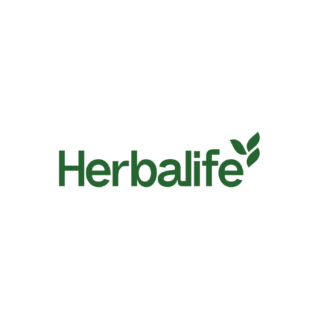2021 was a landmark year for direct selling on many fronts. This post is the second in a series of articles looking back on 2021 and looking ahead to 2022. You can read the first article where we take a high-level look at our 2021 growth survey; some of the year’s biggest success stories; and unveil the top 10 domestic companies for the 2021 Online Digital Momentum Index.
Building Bigger Brands
The direct selling model is becoming more deeply ingrained within larger retail brands, especially in the beauty and cosmetics segments. This trend goes beyond online direct-to-consumer sales done by a retail company. It involves either the development of a supplemental direct/social selling brand within the parent company or the acquisition of a direct/social selling brand into a larger conglomerate.
The benefits are clear and go both ways. Direct selling has robust IT and social selling platforms that the parent company can leverage as well as presence in new markets. And the established retail brand lends credibility and exposure to the direct selling enterprise.
Although this trend isn’t new, it is growing and shaping the scope and focus of the industry. Traditional retail brands are acquiring or merging with direct selling standouts to create even bigger international beauty brands. And these brands dominate across all categories: Direct to consumer, retail, e-commerce and social selling.
There are several very well-known companies and celebrities launching social selling initiatives this year, each with the potential to change and shape the future of this channel. One recently announced example is Kendra Scott, a multichannel retail jewelry and accessories brand starting a direct/social selling division. This 20-year old brand was founded in 2002 and boasts $360 Million in annual sales. Its entry into the social selling space, Direct Retail by Kendra Scott, shows tremendous potential.
Natura, the number two direct selling company in the world, is a prime example of a brand already excelling across all channels. They acquired Avon Products in January 2020 for $3.7 Billion, creating the world’s fourth largest beauty company. The Avon Products acquisition did not include “The Avon Company,” which is owned by South Korean-based LG Household & Healthcare since 2019 and operates in North America.
Natura is also the parent company of The Body Shop, which operates around 2,800 retail locations in over 70 countries providing sustainably produced skincare, body care, hair care and makeup. The Body Shop at Home is their social-selling channel, where consultant satisfaction is an astounding 92 percent and the business has flourished over the last two years including a very successful reintroduction of the model to the U.S. market. Natura also owns Aésop, a luxury skincare brand based in Australia. The brands’ messages are all cause-based and the combination with Avon created a $7 Billion company in 2021.
Another great company showing how channel diversification can strengthen a brand is Beautycounter. 2021 was a landmark year for the clean beauty brand, now valued at $1 Billion after its acquisition by Carlyle. The company has leveraged a wildly successful omnichannel model. Their products can be purchased in a variety of ways: Through one of 65,000 consultants; directly on their website via shoppable live-streams; and traditional retail options through seasonal pop-ups in Sephora and brick-and-mortar locations in markets like Los Angeles, Denver and New York.
Groupe Rocher, a French-based international cosmetic and beauty brand, greatly expanded its portfolio into direct selling when it acquired Arbonne in 2018. The family-owned company owns and operates retail locations throughout France but had little direct selling presence prior to acquiring Arbonne.
The brands share similar values and botanically-based products. Group Rocher understands the value of the direct selling model, and the addition of Arbonne allowed them to become a $3 Billion company.
L’OCCITANE en Provence is another huge beauty brand making an impression in the direct selling/social selling space. They acquired direct-selling standout LimeLife by Alcone in 2017. What started out as an informal referral system at LimeLife by Alcone evolved into a full-fledged business opportunity. The brand has been providing professional makeup artists with their products since 1952 and found social selling to be a natural way to extend the brand with these influential professionals. In fact, the brand joined the DSN Global 100 list in 2020.
The emphasis on social selling continued in 2020 with L’OCCITANE’S U.K. launch of DUOLAB, a social selling-based skincare startup engineered to strengthen its ecommerce sales and expand its digital brand.
In June of 2021, L’OCCITANE en Provence announced plans for the company to expand its omnichannel beauty and lifestyle presence through the direct selling model once again. The expansion was part of the company’s North American business transformation and is designed to help the company develop a more personal relationship with its customers. The result is MyL’OCCITANE, a brand-new social selling platform.
Across All Categories
The trend goes beyond beauty brands and is reflected in other direct selling categories as well. LegalShield has grown considerably the last few years. Serving 4.5 million individuals and 140,000 businesses, LegalShield is the world’s largest platform for legal, identity and reputation management services across North America.
They have three channels including a digital direct-to-consumer option; business-to-business group or corporate sales as well as a vibrant direct selling model. Legal Shield is celebrating its golden 50th anniversary this year. Congratulations to Jeff Bell and the entire Legal Shield team!
In December 2021, health supplement standout Prüvit merged its Exogenous ketones business with direct-to-consumer ready-to-eat healthy meal and snack delivery company Sunbasket to supplement and complement the brand’s healthy lifestyle offering. It’s the kind of brand extension that not only makes sense for the company but also adds tremendous value for the customers and distributors who can now easily order and enjoy the keto-friendly meals and snacks that enhance the Prüvit lifestyle.
Additionally, Total Life Changes just introduced a Product Influencer Program that’s very reminiscent of affiliate marketing. It allows customers that enjoy and believe in the products but don’t want to become distributors in the traditional sense to use their influence to encourage others to buy the products via social media, earning $20 for every product purchase. Best of all, Product Influencers get paid the next day after a qualifying sale.
Other direct sellers are introducing similar programs and encouraging existing distributors to use this exciting social selling system as well. This affordable impulse purchase via a social media selling system has really developed over the last five years. Other amazing success stories include Younique’s lash product; Nu Skin’s toothpaste; Colorstreet’s nail products; Paparazzi jewelry; and Senegence Lipsense. These social media “selling systems” and others like them have successfully acquired tens of millions of customers in direct/social selling.
I hope you and your teams continue to benefit from the research, journalism, advocacy and education Direct Selling News brings to you via our publication, events, website, podcasts and more.

Stuart Johnson has served the direct selling industry for 36 years and is the sole Founder and CEO of Direct Selling News. His passion for the channel encompasses a broader commitment to build and connect the direct selling community through exclusive industry events such as Direct Selling University and the DSN Global Celebration.
Stuart is arguably the most connected person in direct selling, building and growing a network of executives, thought leaders, strategists and innovators. His advice and counsel are sought after by leaders throughout the channel.


